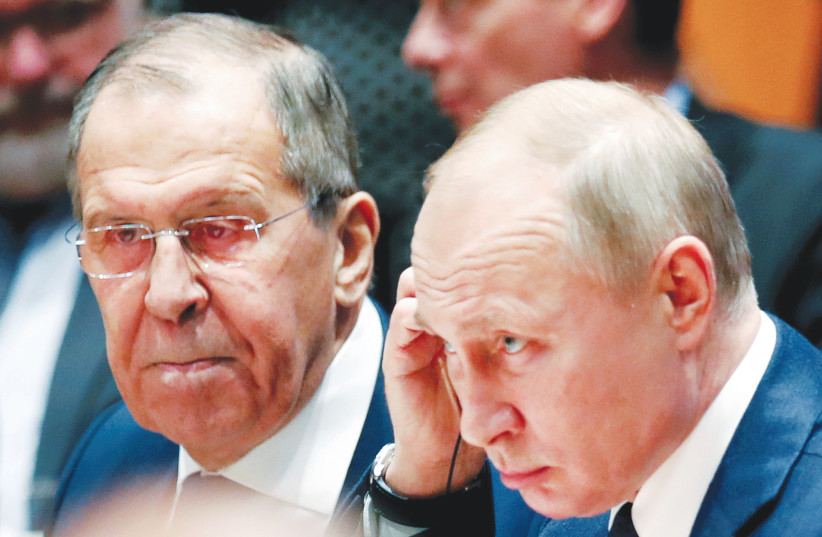"Small, positive developments" in agreeing on logistics of the humanitarian corridors have been made in the third round of talks between Russia and Ukraine in Belarus, Ukrainian negotiator Mykhailo Podolyak said on Monday evening.
However, the Monday talks "did not significantly improve the situation," Podolyak added. The two sides will continue talks on a ceasefire, the negotiator said in a video statement.
Minutes before talks began, Podolyak urged Russia to halt attacks on civilians in a tweet. "In a few minutes, we will start talking to representatives of a country that seriously believes large-scale violence against civilians is an argument. Prove that this is not the case," he wrote.
Russian negotiators, on the other hand, said they did not have positive developments to report following talks with Ukraine and warned not to expect the next round to bring a final result.
The talks "are not easy. It is too early to talk about something positive," negotiator Vladimir Medinsky said following the talks. "Hopefully next time we can take a bigger step forward."
Earlier on Monday, Moscow announced a limited ceasefire and claimed it had opened humanitarian corridors from encircled Ukrainian cities to Russian and Belarusian territory, despite Ukraine's demand for the corridors to lead West of Ukraine. Governor of Donetsk Pavlo Kyrylenko said evacuation proposals offered by Russia so far were not something Ukraine could agree to.

Worldwide mediation efforts
As talks between Russia and Ukraine have so far proven to be fruitless, leaders across the globe, including Israel's, have attempted to mediate between the two European countries in an effort to stop Russia's invasion and bring peace to the region.
It was announced that Russian Foreign Minister Sergei Lavrov will meet with Ukrainian counterpart Dmytro Kuleba for the first time since the invasion began.
The meeting is set to be held on Thursday in Turkey, a NATO member which has been pushing for mediation between the two sides due to its good relations with both Moscow and Kyiv.
China, which has kept quiet over the Russia-Ukraine war, has for the first time on Monday indicated that it is willing to mediate and "play a constructive role in promoting peace talks," Chinese Foreign Minister Wang Yi said at a press conference, CNN reported on Monday.
"China is ready to... work with the international community to conduct necessary mediation, when necessary," he said.
Wang, who offered no further details, reiterated that diplomatic relations between China and Russia are "as firm as a rock" and represent "one of the most crucial bilateral relations in the world."
Taking a stand
US President Joe Biden and the leaders of France, Germany and Britain affirmed in a video call on Monday their determination to continue raising the costs on Russia for its "unprovoked and unjustified invasion of Ukraine," the White House said.
Biden, French President Emmanuel Macron, German Chancellor Olaf Scholz and British Prime Minister Boris Johnson "underscored their commitment to continue providing security, economic, and humanitarian assistance to Ukraine," the White House said in a statement.
British Foreign Secretary Liz Truss said earlier on Monday India had a level of dependency on Russia which might go some way to explain its decision to abstain in a vote at the United Nations to deplore Russia over Ukraine.
"I think the issue for India is there is some level of dependence on Russia, both in terms of its defense relationships but also in terms of its economic relations. And I think the way forward is for a closer economic and defense relationship with India," Truss told a parliamentary committee.
"I have spoken to my (Indian) counterpart, minister Jaishankar, and encouraged India to stand against Russia."
